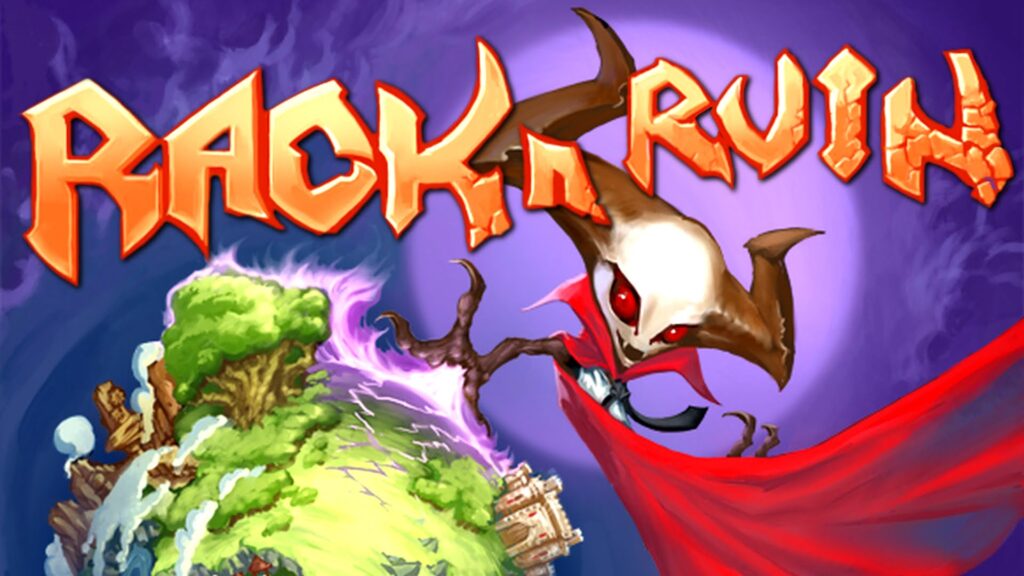
Back in 2015, PlayStation 4 and PC were graced with Rack N Ruin. This was a game that nobody played and quickly fell into obscurity.
What was it that made Rack N Ruin such a plain Jane and forgettable Zelda clone? It certainly does not make much of a first impression due to its bland and characterless art style.
The floaty gameplay and sloppy combat does not inspire much confidence in the initial opening moments. One might think it could get better as the story unfolds, right? Wrong- Rack N Ruin becomes a waking nightmare.
Rack N Ruin
Developer: LifeSpark Entertainment
Producer: Secret Item Games
Platforms: PlayStation 4, Nintendo Switch (reviewed), Mac OS, Linux, Microsoft Windows
Release Date: March 13, 2020
Players: 1
Price: $12.99
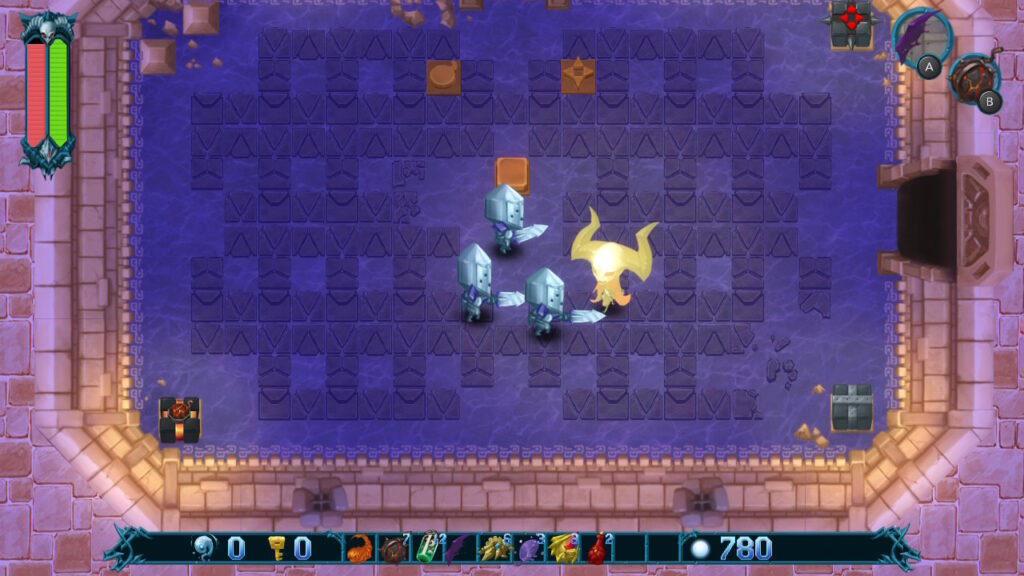
Somebody worked hard to make Rack N Ruin, and yet the result is an agonizngly boring action-adventure that cribs from The Legend of Zelda: A Link to the Past. Even desperate and hardcore Zelda fans should look elsewhere if they really need a fix.
How did something made with passion turn out to be a sleep-inducing, unimaginative knock-off? It is a layered and complex plethora of reasons and it begins with its lack of creative spark.
The premise has promise; it is a bog-standard overhead action adventure game but with the twist of playing as a bad guy. Rack is the protagonist-villain, and he looks like the kind of design that would be voiced by Richard Horvitz, shouting every line of dialogue.
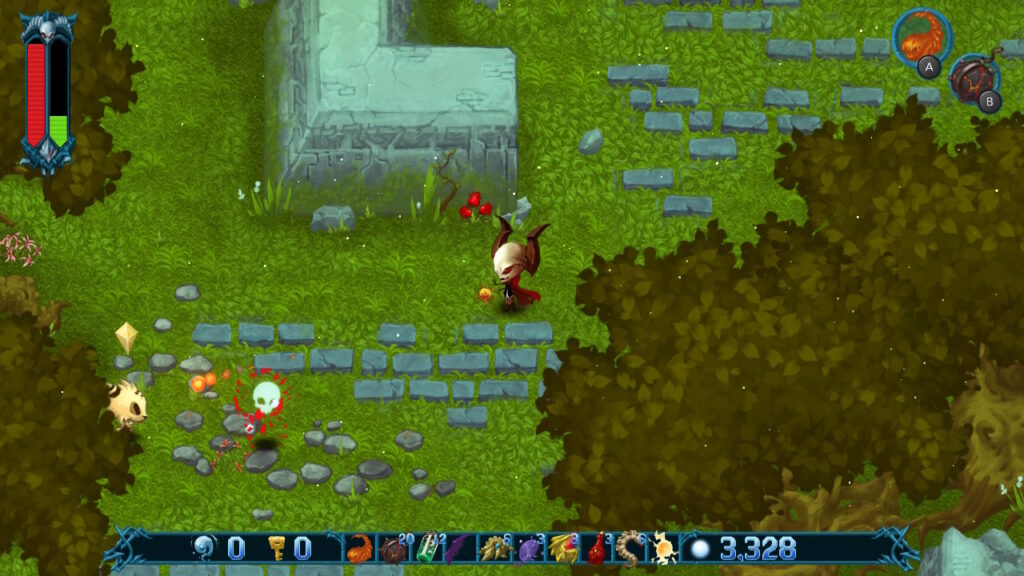
Speaking of, dialogue is usually drawn out and overly written. It comes off like the writer was infatuated with their own writing and believed what they were writing was the funniest material ever. There is never a single witty line of dialogue to read ever, despite how much flavor text is in Rack N Ruin.
Most scenes play out with a satirical depiction of standard NPC style characters, but the twist is that Rack is supposed to be an evil demon. Most characters don’t take him seriously, and then they get hurt or Rack says something to the effect of, “You are all doomed!”.
Anyone who has seen the cartoon Invader Zim will have seen the kind of humor Rack N Ruin is aiming for, but the game’s designers just lack the creative wit. The humor just always falls flat on its face and every scene is so predictable that the game becomes so boring.
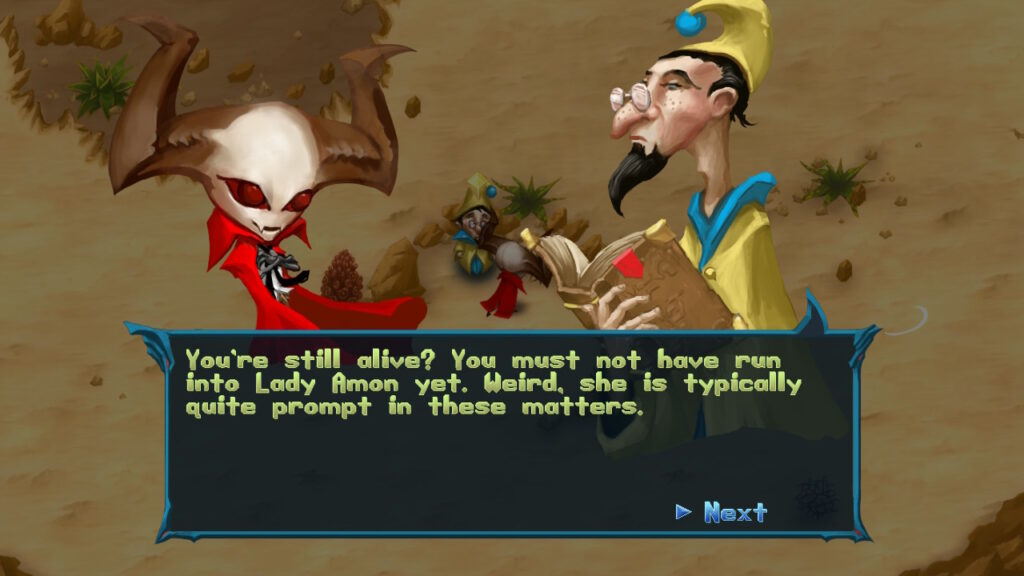
In the right hands, this kind of satire on a Zelda-style game structure could have been amusing. In this case, every story beat is just an eye-roller with unfunny sarcasm. Rack does not even look like a demon- he resembles a Roswell gray, and his horns look like he’s thrown his hands up in befuddlement.
Some may ignore the narrative entirely and just skip right to the gameplay. Those people are going to suffer the most because Rack N Ruin is more boring when skipping the story.
Maybe things are different on the PlayStation 4 and PC versions of Rack N Ruin, but on Switch it seems like it was originally intended to control like a twin-stick shooter. There are no alternate control schemes and the default layout cannot be remapped.
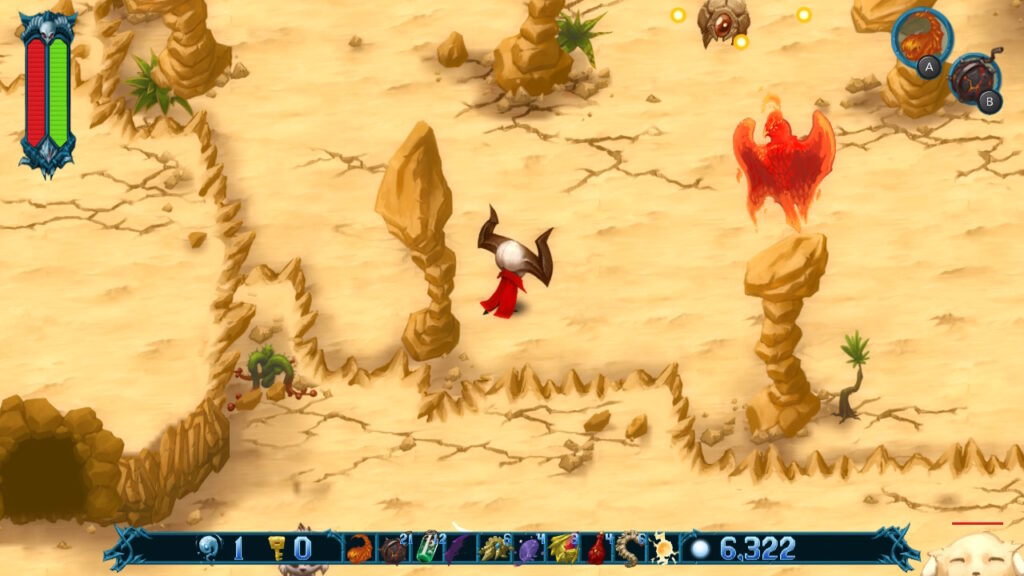
The shoulder and trigger buttons are mapped to swapping weapons, consumables, and lock-on, while the face buttons are for using them. This would be standard and acceptable in most overhead action-adventure games, but Rack N Ruin is one of those kinds of indie games that tries to bend the genre.
Twin-stick action would make a lot of sense because of how the levels are designed to be wide open, and enemies tend to spray elaborate patterns of bullets. Rack can only lock-on to targets and fire away while maneuvering around threats, eliminating any need for accuracy from the player.
Most frustratingly, Rack’s hit box makes no sense and is very inconsistent. He has a huge head and logically it would be assumed that would be vulnerable. Sometimes bullets hurt his head, and sometimes they don’t- the game can’t decide. Even his tiny body that can barely be seen counts as a hit box.
When not engaged in combat, Rack stiffly glides around an overworld map like you do any Zelda game. Finding keys, and using newly acquired abilities to open doors or access previously unreachable areas is handled as bog standard as can be.
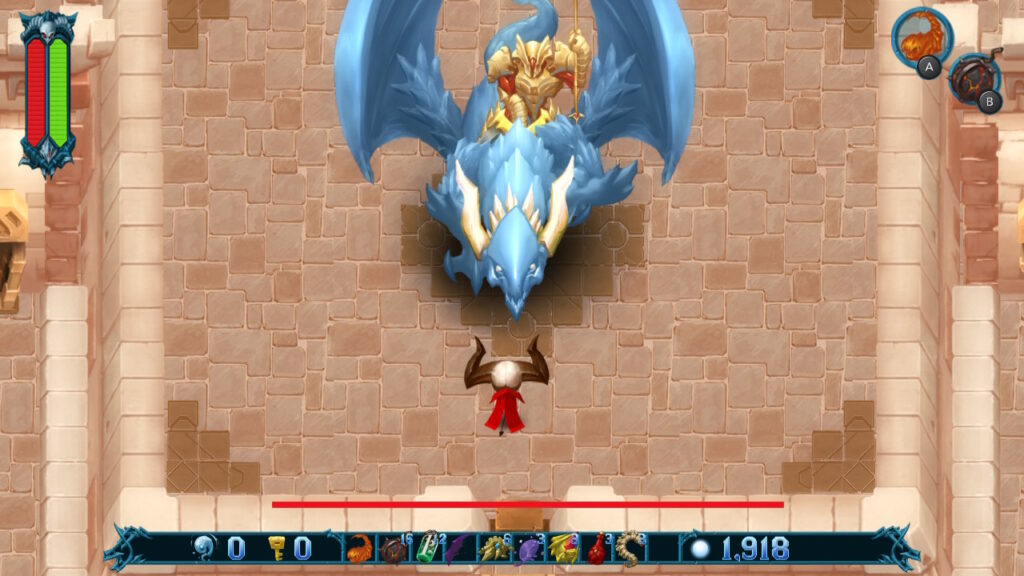
It is terribly inoffensive and unremarkable, with an intense lack of personality to the world design. The setting is the most bland fantasy world ever conceived with no striking features to call its own, other than the sloppy art.
The only indication that Rack N Ruin is supposed to be satirical, is that characters are written with a hint of smug self-awareness. The idea of playing as a villain is sorely underutilized, since the idea of destroying the world and doing a dark master’s bidding never comes into gameplay.
If you skip every story beat, and not read any of the text it would be easy to assume that Rack N Ruin is no different than any other action-adventure game on the market.
The whole concept is transparently artificial and lacking substance. There is no pay-off to being what is basically Ganondorf gathering power to fight heroes. At the end of the day, Rack is no different than any other do-gooder with a sword and cross on his shield.
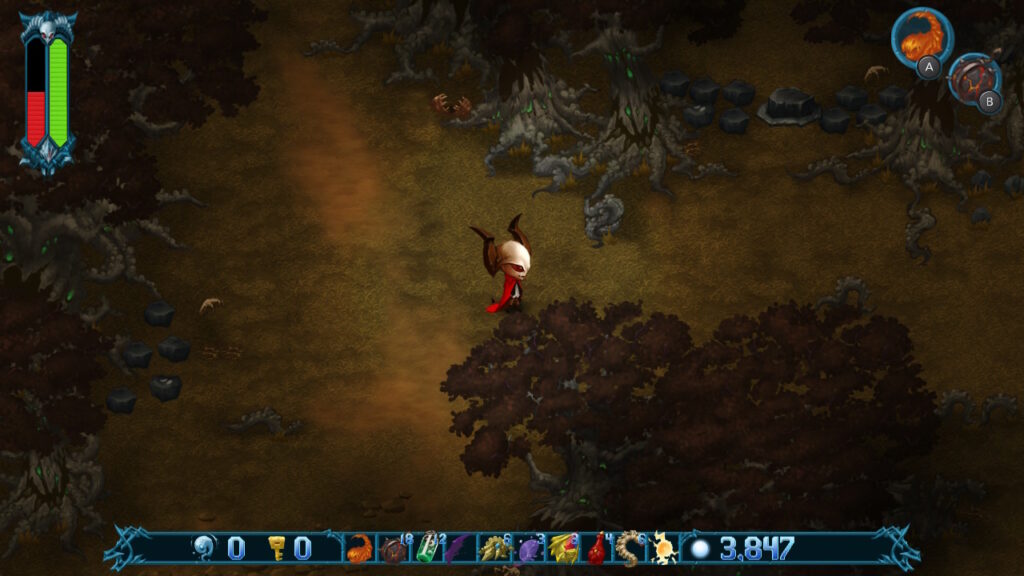
The best aspect of Rack N Ruin is its music. It is still a forgettable display of generic fantasy music, but it does manage to capture some atmosphere, and can be kind of catchy. Sound design is on the weak side, lacking any punch for the really large magics that fill the screen.
Rack N Ruin is far from being a bad game. Really terrible games can be memorable, and amusing experiences. Rack N Ruin falls into a hazy limbo of forgettable and boring. The kind of game that is so tedious to play it lulls you into a coma. The real challenge is trying to stay awake to bother to avoid predictable and obvious boss patterns.
The kind of challenge where things are so boring but you keep tuning out, defines the Rack N Ruin experience. It is not a buggy or glitchy mess, and most things work as intended. The problem with Rack N Ruin is that it sets such a low bar for itself and whoever picks it up, that it leaves no impression at all.
Rack N Ruin was reviewed on Nintendo Switch using a review copy provided by Secret Item Games. You can find additional information about Niche Gamer’s review/ethics policy here.